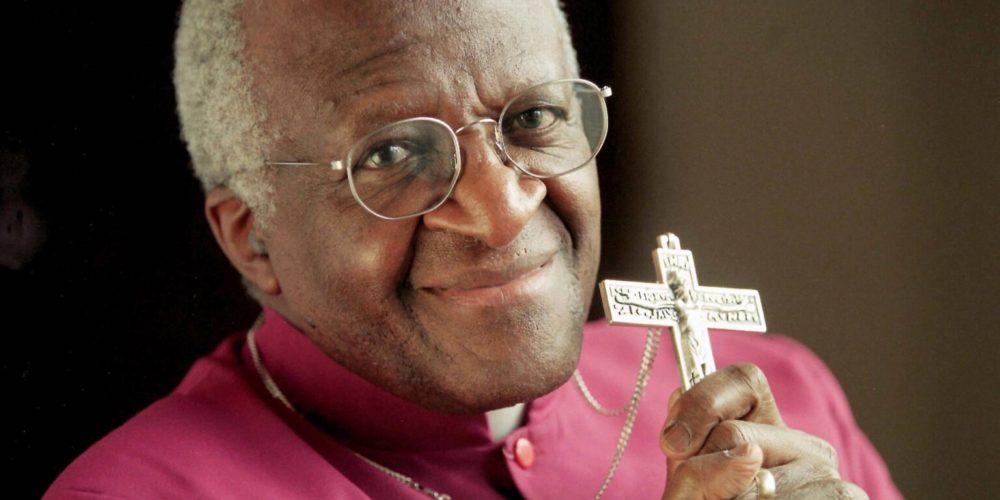Three reflections from Desmond Tutu

Desmond Tutu is no more. You will by now have read plenty about this storied African’s manifold achievements. The always smiling Archbishop was a man of courage, wisdom—and much irreverent humour. Allow me to share three of his insights that have stayed with me over the years.
The first is this very cheeky observation, coming as it did from a man of the cloth, that made me burst out laughing when I first read it decades ago:
“When the missionaries came to Africa, they had the Bible and we had the land. They said, ‘Let us pray.’ We closed our eyes. When we opened them, we had the Bible, and they had the land.”
I’m still laughing! He reportedly followed up on this tongue-in-cheek zinger with the observation that the Africans got the better part of the deal… Be that as it may, this was an astute observation about colonialists and their methods. It was not just brute force and superior technology that was used to expropriate huge swathes of an entire continent. Soft power also played a key role. Those being subjugated were beaten into submission, yes—but they also had to be persuaded. They had to be made to adopt the religion, dress, norms, language and culture of the subjugator.
Hard power can be repulsed, eventually—and was. Soft power, though, persists. We are, many decades on, still being schooled, clothed, judged and structured in the manner of our coloniser—and that speaks volumes. As a matter of strategy, one can never outdo a dominant power by trying to be like that power. One only ends up second-rate, a cheap replica. To ascend properly, one must always find one’s own path. Imitation is just another form of subjugation.
A second Tutu-ism I’d like to share today:
“My father always used to say, ‘Don’t raise your voice. Improve your argument.’ Good sense does not always lie with the loudest shouters, nor can we say that a large, unruly crowd is always the best arbiter of what is right.”
This is especially true now, when the shouty crowd is found not just on the streets but online. It has become nearly impossible to have any debate of substance on any platform. Those who can gather the larger mob shout everyone else down. No one tries to improve their argument politely or with courtesy; it’s all heat and no light; all insult and no consult; all screech and no teach.
This will take us nowhere other than where loud mobs have taken anyone: chaos. If the loudest win the argument, then the least thoughtful become the leaders of the land. If deep thought, nuanced debate, and polite discourse become irrelevant, then downwards and backwards are the only directions we have. Those of us who still regard open-mindedness and tolerance of difference to be important values should protect them—by exhibiting them, not by partaking in deranged shouting matches.
A last one from the beaming bishop:
“There comes a point where we need to stop just pulling people out of the river. We need to go upstream and find out why they’re falling in.”
That is simply one of the most evocative bits of wisdom ever spoken. We, all of us, know how to respond to events. When people are floundering in the river, we pull them out. If we are still doing that decades later, we must rethink our approach.
If we are a nation, why do we still have armies of under-educated, unemployed citizens? Why is basic health still unavailable to the ordinary person? Why does our economy always zoom around the airport without ever taking off into the clouds for a sustained ride?
The answers to these questions will not be found at the point of the result; we must go up the river to find the causes—and deal with them. Pulling bodies out of rivers is the easy thing. It is way, way harder to stop them falling in.
This downstream focus can be seen in our personal lives as well. Many of us repeat our mistakes, again and again. We fail in relationships, we fail in our enterprises, we have recurring health problems, we remain stuck in ego-centred behaviour. Most of the time, we haul ourselves out of the river yet again, dry ourselves off—and learn nothing.
Perhaps, as we bid 2021 and Desmond Tutu goodbye, we can all make more trips upriver in 2022?
(Sunday Nation, 9 January 2022)

Buy Sunny Bindra's new book
The X in CX
here »
Popular Posts
- Where are you rushing to—your funeral?June 29, 2025
- How to spot a real thinkerJune 15, 2025
- The map will appear—once you start walking.July 6, 2025
- Built the app, forgot the flowJune 22, 2025















